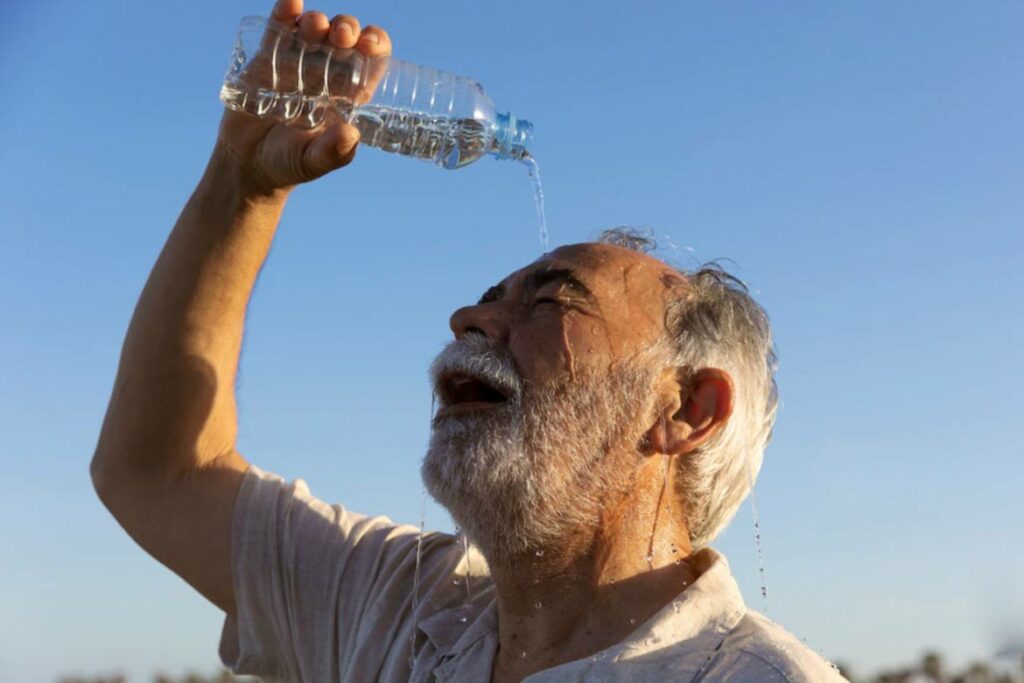Heat waves are periods of excessively hot weather, often accompanied by high levels of humidity, that can last for days or weeks. They are one of the deadliest meteorological disasters, as they have the potential to trigger the death of many people and animals, as well as cause damage to infrastructure and ecosystems.
India is at significant danger of experiencing extremely hot weather, with the frequency and intensity of heat waves anticipated to increase by 2050. Heat waves are expected to become more frequent, start earlier, and stay longer as a result of climate change and the warmer El Nio phenomenon, which might occur as early as May 2023.
El Nio is related with the development of a belt of warm ocean water in the central and east-central equatorial Pacific, which can alter weather patterns around the world. El Nio may diminish India’s southwest monsoon season, which accounts for roughly 70% of total rainfall in the country and on which most farmers still rely. It may also exacerbate summer heat waves, which are already becoming more frequent, intense, and dangerous, putting a strain on public health, agriculture, and other socioeconomic and cultural institutions.
According to a study of University of Cambridge, the impacts of a growing heat wave threaten nearly 90% of India, including almost all of Delhi. It indicated that heat waves have become more common and prolonged in India and the Indian subcontinent; it is past time for climate researchers and policymakers to reassess the measures used to estimate the country’s climate sensitivity.
Harmful effects of Heat wave on human body:

Read more: 10 Best Home Equipment for Home Workout
One of the main effects of heat waves is heat-related illness, which can range from mild to severe. Heat-related illness occurs when the body’s ability to cope with heat is overwhelmed by the external temperature and humidity. Some of the common symptoms of heat-related illness include:
- Heat exhaustion: This is a minor condition that can result in dizziness, headaches, nausea, vomiting, weakness, exhaustion, and fainting. Rest, a cool location, and hydration are usually sufficient treatments.
- Heat stroke: It is a potentially fatal disorder that causes high fever, dry skin, confusion, seizures, coma, and death. It necessitates rapid medical treatment and body cooling.
- Heat cramps: Theseare painful muscle spasms caused by dehydration and electrolyte imbalance that can occur in the legs, arms, or abdomen. They can be alleviated by drinking plenty of fluids and extending the muscles.
- Heat rash: It is skin irritation caused by excessive sweating and clogged pores that can produce redness, itching, and blisters. Wearing loose-fitting clothing and keeping the skin dry can help prevent it.
Heat waves can also exacerbate existing chronic conditions, such as cardiovascular disease, respiratory disease, kidney disease and mental illness. For example, heat waves can increase the risk of heart attacks, strokes, blood clots, asthma attacks, kidney failure and depression. People with these conditions should consult their doctors and follow their advice on how to manage their symptoms during heat waves.
- Another effect of heat waves is dehydration, which can occur when the body loses more water than it takes in. Dehydration can impair the body’s functions and lead to headaches, thirst, dry mouth, low blood pressure, rapid heartbeat and fainting. Dehydration can also affect the brain and cause confusion, irritability and impaired judgment.
Do’s and Don’ts to minimise Heat wave impact:

Read more: Difference between sunscreen and sunblock? Which one should you choose?
The India Meteorological Department (IMD) has issued heat wave warnings for numerous states in northwest and eastern India between April and May 2023. The Union health ministry has also published an advice for the projected heat wave from March to May 2023, along with a list of ‘Dos and Don’ts’ to reduce the impact and prevent serious illness or death from heat stroke. Here are some suggestions for being safe and healthy during the heat wave:
- Avoid going outside in the intense sun, especially between 12 and 3 p.m., when temperatures are at their highest.
- Avoid tiresome activities while the temperature outside is high. If you work outside, use a hat or an umbrella and use a wet towel to clean your head, neck, face, and limbs.
- Even if you’re not thirsty, drink plenty of fluids to replenish lost water of body. Consume ORS or drinks like lassi, lemon water, buttermilk, and so on to help rehydrate your body.
- Dehydrating beverages such as alcohol, tea, coffee, and carbonated soft drinks should be avoided. Avoid high-protein foods and eat stale food.
- Wear loose, light-colored cotton clothing that is lightweight and porous. Wear protective glasses, shoes, or chappals when going out in the sun.
- To keep your home cool at night, use curtains, shutters, sunshades, and open windows. On a frequent basis, use fans, damp garments, and cold baths.
- Children and dogs should never be left in parked cars. Provide plenty of water and keep animals in the shade.
- If you feel dizzy or ill, go see the doctor right away. Headaches, nausea, dizziness, weakness, irritability, thirst, and profuse perspiration are all symptoms of heat exhaustion.
- If you suspect someone is suffering from heat stroke (a severe form of heat exhaustion), take them to a cool, shaded area. Wipe her/him down with a damp cloth and wash the body on a regular basis. Normal-temperature water should be sprayed on the head. The primary purpose is to reduce body temperature. Take the victim to the nearest health centre as soon as possible. Heat strokes can be fatal, thus the victim should be hospitalised as soon as possible.
- Maintain an eye on weather forecasts and heed the recommendations of the IMD and other authorities.
People’s health and well-being are jeopardised by heat waves. By following these simple principles, we may protect ourselves and our loved ones from the risks of extreme heat.
